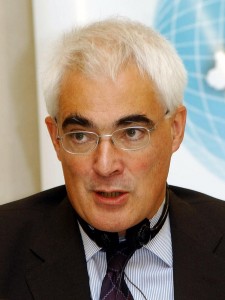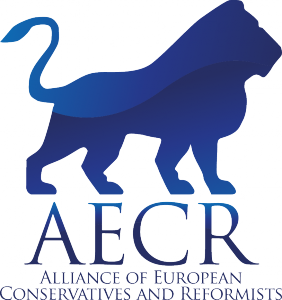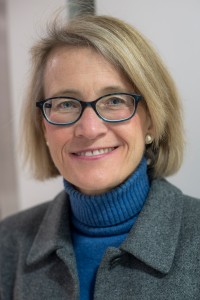Gudni Th. Johannesson, Associate Professor of history at the University of Iceland, and Hannes H. Gissurarson, Professor of Politics at the UI, both agreed that new evidence was to be found on the 2008 Icelandic bank collapse, at a meeting held by RNH and the Icelandic Association of Political Scientists Wednesday 14 January 2015. Johannesson has analysed documents from Wikileaks and obtained documents from the British Foreign and Commonwealth Office, FCO, by invoking the British Freedom of Information Act. In his paper, he said that the evidence available to him suggested that a loan from Russia to Iceland, discussed before the bank collapse, had been a real possibility. Also, a much-debated television interview with the Governor of the Central Bank of Iceland, David Oddsson, did not bring about the use of British anti-terrorism law against Iceland, as was sometimes alleged. The documents from the FCO however had limited value because so much was redacted out of them. They nevertheless showed that the British Treasury had, in the autumn of 2008, directed negotiations with the United Kingdom, and not the FCO. Johannesson said that he doubted the “insurrection theory” about Iceland in the financial crisis maintained by Styrmir Gunnarsson and Hannes H. Gissurarson. Johannesson also discussed, in general terms, the historical significance of documents and the demand for impartiality in history. He published a paper in the historical journal Saga on these issues in the autumn of 2014.
Professor Gissurarson pointed out that 7 January 2015, minutes of the Court of the Bank of England from 2007–9 were published online. At a meeting on 15 October 2008, the Court expressed its view that attempts by individual nations to become financial centres should be strongly discouraged. Iceland was taken as a specific example. Gissurarson agreed with Johannesson that a loan from Russia had been a real possibility. He quoted Tryggvi Thor Herbertsson, then the economic adviser to the Prime Minister, who had received a phone call from the Russian Ambassador in the morning of 7 October 2008, immediately after Governor Oddsson had received a call from the Ambassador. The message to both was unequivocal: Russia had decided to issue a loan to Iceland. The Russians had however second thoughts later in the day when somebody informed them that the International Monetary Fund, IMF, was trying to have a programme for Iceland being accepted. After this, Iceland had been entrapped by the IMF which turned itself into a bounty collector for the British, refusing to negotiate until Iceland assumed responsibility for the failed banks’ obligations. If Iceland had, in the midst of the financial crisis, been able to make a currency swap deal or establish a credit line of $5–10 billion, either with Russia or the US, then there would not have been a run on the banks and a massive cancellation of credit lines to them: then, the government could have taken the “Swedish option” which was to keep operating the banks, dividing them up between a “good” part and a “bad” part, with bank shareholders losing most or all of their equity. Then a foreseeable downturn would not have become a total collapse.
 Dr. Eirikur Bergmann commented on the two papers. He criticized Professor Gissurarson’s distinction between “good” and “bad” capitalists. He also said that it remained to be explained why the British government had been so brutal towards an old ally and friend. It seemed that it thought that it had been promised a full guarantee of the banks’ obligations in the UK, and that this promise had been broken. Nobody knew however who would, or could, have given such a promise. The meeting which was held at the University of Iceland was very well-attended. A lively discussion followed the papers by Johannesson and Gissurarson and the comment by Bergmann. Dr. Tryggvi Thor Herbertsson confirmed the account given by Gissurarson on the discussion of the Russian loan. The meeting formed a part of the joint project by RNH and AECR, Alliance of European Conservatives and Reformists, on “Europe, Iceland and the Future of Capitalism”. Vidskiptabladid, the Icelandic business weekly, recorded the whole meeting and published it on its website, as well as a series of photographs of it. Both the Icelandic Broadcasting Service and Station Two interviewed Johannesson and Gissurarson for the evening television news, and also the radio programme “The Mirror” (Spegillinn).
Dr. Eirikur Bergmann commented on the two papers. He criticized Professor Gissurarson’s distinction between “good” and “bad” capitalists. He also said that it remained to be explained why the British government had been so brutal towards an old ally and friend. It seemed that it thought that it had been promised a full guarantee of the banks’ obligations in the UK, and that this promise had been broken. Nobody knew however who would, or could, have given such a promise. The meeting which was held at the University of Iceland was very well-attended. A lively discussion followed the papers by Johannesson and Gissurarson and the comment by Bergmann. Dr. Tryggvi Thor Herbertsson confirmed the account given by Gissurarson on the discussion of the Russian loan. The meeting formed a part of the joint project by RNH and AECR, Alliance of European Conservatives and Reformists, on “Europe, Iceland and the Future of Capitalism”. Vidskiptabladid, the Icelandic business weekly, recorded the whole meeting and published it on its website, as well as a series of photographs of it. Both the Icelandic Broadcasting Service and Station Two interviewed Johannesson and Gissurarson for the evening television news, and also the radio programme “The Mirror” (Spegillinn).
Here are the interviews on Station Two:
Here is the account of the meeting in Morgunbladid:
Here are Professor Gissurarson’s slides:
Here is the account in Vidskiptabladid:














